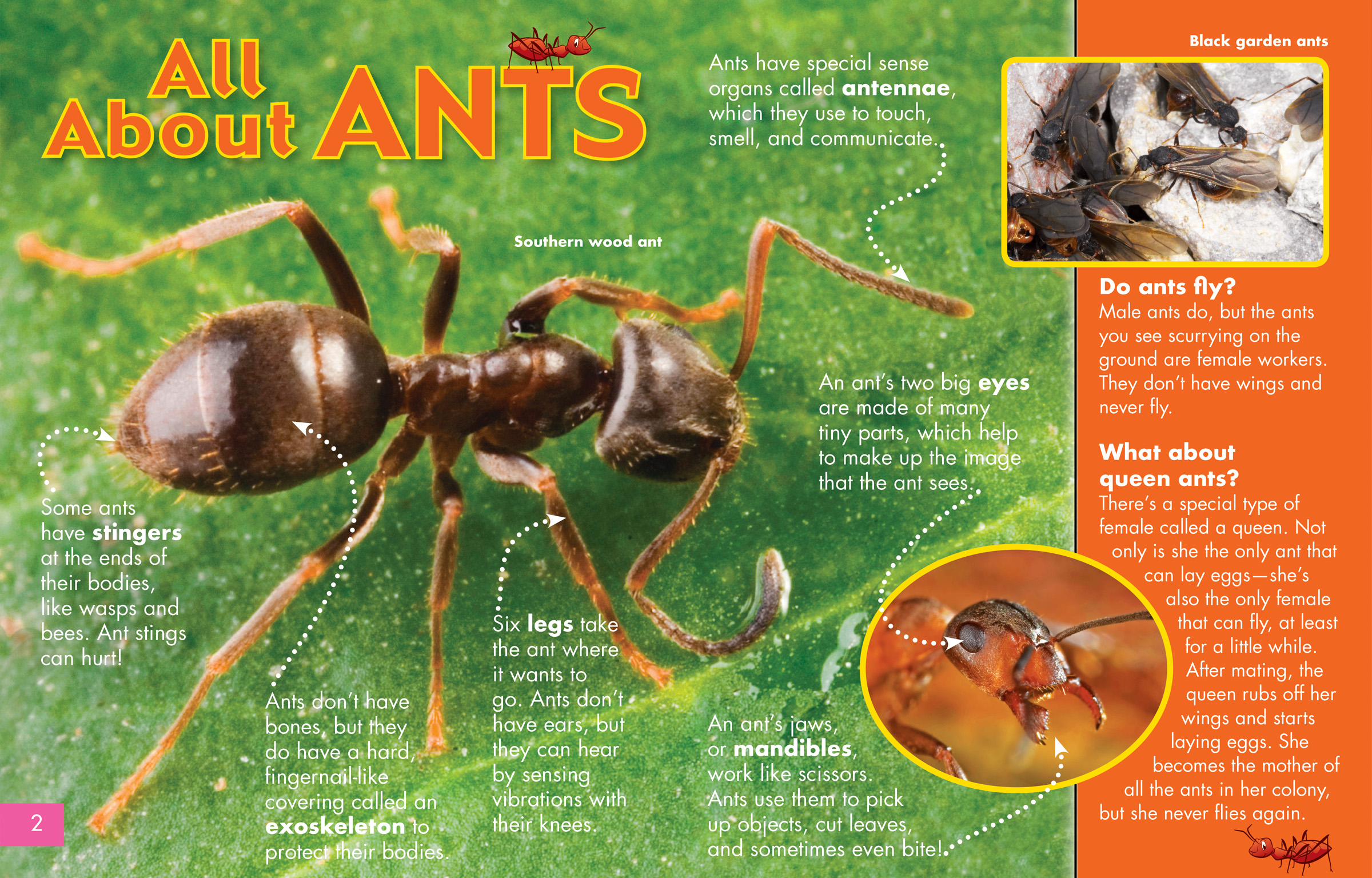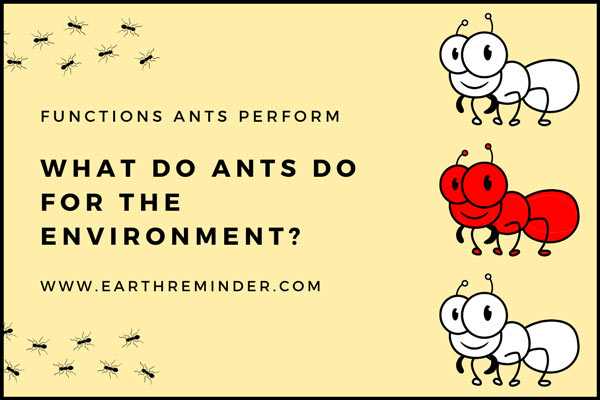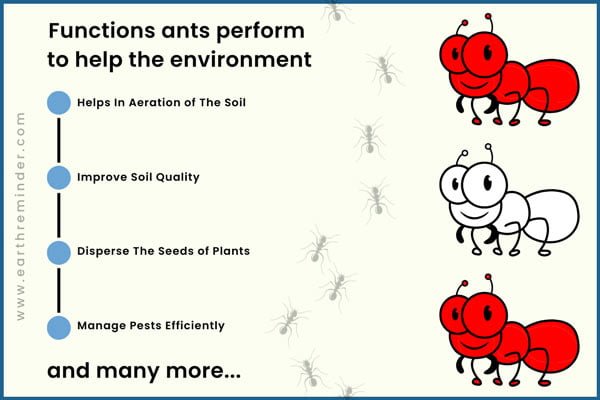Ants play a crucial role in aerating the soil and acting as natural pest controllers. Their scavenging helps in nutrient recycling and ecosystem balance.
Ants are essential to our world, going beyond merely marching in lines or invading picnics. These tiny insects lead complex social lives, work diligently, and contribute significantly to environmental health. By creating networks of tunnels, ants aerate the soil, which improves its quality and aids plant growth.
They also keep a check on pest populations, naturally controlling insects that could otherwise damage crops and plants. Their constant collecting and disposing of organic material enhances nutrient cycling, making them vital players in various ecosystems. Ants even engage in seed dispersal, unwittingly planting the seeds of numerous plants. Their role in the food chain, serving as food for other species, further underscores their importance. The actions of ants support biodiversity, maintain healthy soils and facilitate flourishing plant life, underlining the impact these small creatures have on the grand scale of life on Earth.
The Unsung Heroes: Ants’ Global Impact
Often tiny but mighty, ants play a huge role in our world. These little insects work tirelessly, and their impact is mighty. Ants contribute to our environment in ways we might not notice at first glance. Let’s dive into their world and discover how they keep our ecosystems balanced and healthy.
Vital Role In Ecosystem Balance
Ants are crucial for a healthy planet. They are environmental engineers and keystone species in many ecosystems. Here’s what they do to maintain balance:
- Seed Dispersal: Ants carry seeds to new locations, helping plants spread.
- Pest Control: They eat pests and limit overpopulation.
- Recycling Nutrients: Ants break down organic matter, enriching the soil.
- Aiding Pollination: By moving from flower to flower, they help plants reproduce.
Engineers Of The Soil
Ants are the unsung builders of our world. They improve soil structure and fertility with their activities:
- Tunneling: Ants create underground networks, which enhance soil aeration.
- Decomposition: As decomposers, they add organic matter to the soil.
- Water Infiltration: Their tunnels also help with water absorption.
Every ant colony is a beehive of activity that sustains the ground beneath our feet.
Decomposers: Ants’ Cleaning Service
Ants play a crucial role in our ecosystem. These tiny creatures act as efficient decomposers. They consume leaf litter, dead insects, and other organic material. Their work recycles nutrients and supports plant growth. Ants are nature’s clean-up crew, taking care of waste before it piles up.
Organic Matter Recycling
Ants are master recyclers of organic matter. They break down dead plant and animal material. This process enriches the soil, making it more fertile. Without ants, decomposing matter would accumulate, disrupting the balance of ecosystems.
Natural Waste Management
- Reduces soil pests: By eating dead bugs, ants control pest populations.
- Minimizes disease spread: Cleaning up waste, ants help prevent diseases in other animals.
- Cuts greenhouse gases: Decomposition can release gases; ants help by consuming debris fast.
Ants are the unsung heroes of the natural world. Their daily routines keep our planet healthier. The next time you see an ant, remember its vital role in maintaining the balance of nature.
Agricultural Allies: Ants’ Farming Contributions
In the vast world of agriculture, ants play a crucial role often unseen by the naked eye. Their daily activities contribute remarkably to farm health and crop productivity. Let’s explore these tiny yet mighty agricultural allies and their beneficial impacts on farming systems.
Pest Control Experts
Ants are nature’s pest control agents. They are crucial in maintaining ecological balance within farmlands. Here’s how ants protect crops:
- Hunt down pests that threaten crop health
- Prevent outbreaks by eating eggs and larvae of harmful insects
- Reduce the need for chemical pesticides
Efficient pest management by ants leads to healthier crops and a sustainable environment.
Pollination Partners
Ants are not just warriors on the ground; they also aid in pollination. Entwined with the life cycle of plants, their pollination contribution includes:
- Traveling from flower to flower, transporting pollen
- Enhancing seed dispersal for some plant species
- Increasing plant biodiversity and agricultural yields
As tiny pollinators, ants boost the growth of a wide array of crops, supporting global food security.

Credit: rangerrick.org
Soil Aeration And Nutrient Cycling
Imagine tiny farmers working tirelessly day and night to cultivate the Earth—welcome to the world of ants. These remarkable creatures play a pivotal role in two crucial ecological processes: soil aeration and nutrient cycling. Below, we’ll dive into the fascinating work ants do to maintain healthy soil ecosystems.
Tunnel Architects Enhancing Soil Quality
Ants are master builders, constructing intricate tunnel networks that crisscross the soil. These tunnels allow air to flow more freely, which is vital for other organisms living below the surface. Improved air circulation prevents soil compaction and promotes the growth of plants. Ants indirectly ensure plants have easy access to oxygen and water, optimizing conditions for robust plant health.
- Enhances water infiltration: Ant tunnels help water seep through the soil.
- Prevents soil erosion: Their networks keep the soil from washing away.
- Boosts root development: Roots expand more easily in aerated earth.
Fertilization Via Biodegradation
As ants consume organic matter, their waste products act as a natural fertilizer. Through biodegradation, ants break down dead insects, leaves, and other organic debris. This recycles nutrients back into the soil, providing essential nourishment for plants. Think of ants as organic composters who work invisibly in our gardens and forests.
| Ant Activities | Soil Benefits |
|---|---|
| Decomposing organic material | Releases nutrients |
| Moving seeds underground | Spreads plant growth |
| Feeding on pests | Controls harmful insect populations |
In summary, ants contribute significantly to soil health and vitality. Their relentless work as tunnel architects improves soil quality, while their role in fertilization via biodegradation ensures the continual enrichment of the ecosystem. Next time you see an ant hill, remember the unseen but vital labor going on beneath your feet, nurturing the very ground that sustains life on this planet.
Ants In The Food Chain: A Critical Link
Ants play a vital role in ecosystems worldwide. They act as tiny engineers of the earth, integral to the balance of nature. Let’s delve into how these small creatures hold a big position in the food chain.
Prey For Wildlife
Many animals depend on ants for nutrition. Birds, lizards, and even bears see ants as a tasty snack. The survival of these ant-eaters shows how important ants are as a food source. This relationship highlights ants’ role in energy transfer within the food web.
Influence On Biodiversity
Ants affect plant growth and help maintain soil health. They spread seeds, allowing new plants to thrive. This creates a diverse habitat for other species. By managing pest populations, ants indirectly influence plant survival and biodiversity.
- Seed dispersers: Ants carry seeds to new locations, aiding forest regeneration.
- Soil aerators: Their tunnels let air and water reach plant roots.
- Predators and prey: They hunt pests and are food for other wildlife.
:max_bytes(150000):strip_icc()/ant-macro-photos-1085165210-186826d81fd44114aa7b0f8eee555872.jpg)
Credit: www.thoughtco.com
Seed Dispersal And Plant Diversity
Ants play a surprising role in the environment. Seed Dispersal and Plant Diversity are crucial functions they perform. Through their daily activities, ants spread seeds, helping plants grow in new places. This way, they contribute much more to our ecosystems than we may realize.
Promoting Forest Regrowth
Many trees depend on ants to move their seeds. As ants carry seeds back to their nests, they help forests grow. The seeds often fall away from the parent plant. This reduces competition for sunlight and nutrients among seedlings. Forests can regrow after fires or deforestation thanks to ants. They are unsung heroes in forest restoration efforts.
Maintaining Plant Communities
- Seed distribution: Ants carry seeds to diverse locations.
- Soil health: Burrowing ants aerate the soil, aiding plant growth.
- Nutrient cycling: They break down organic material, enriching soil.
By moving seeds to nutrient-rich environments, ants ensure that plant communities thrive. Not only do they help with germination by breaking seed coats, but their underground tunnels also enhance soil quality. This allows a rich variety of plants to coexist, ensuring a robust and diverse ecosystem.
Biodiversity Champions: Ants’ Ecological Significance
Imagine a world teeming with life, each creature playing its part. Ants are key players in this intricate web of life, often unseen but vital. These tiny insects are more than just picnic invaders; they are powerful agents of change within ecosystems. They uphold biodiversity and offer clues to the health of our environment.
Species Interdependence
The world is an interconnected community, and ants embody this through their relationships with plants and animals.
- Ants aid in seed dispersal, helping plants to thrive.
- They improve soil quality through their tunneling.
- They control pests, protecting crops and wild vegetation.
Without ants, many species would face challenges in survival and reproduction.
Resilience And Adaptation
Ants’ ability to adapt is unparalleled. They’ve conquered almost every landmass on Earth.
| Ant Characteristic | Ecological Impact |
|---|---|
| Flexibility in Diet | Maintains balance in food chains. |
| Climate Resilience | Survives extreme changes, indicating ecosystem health. |
| Complex Societies | Helps in quick adaptation to environmental changes. |
These qualities make ants excellent indicators of environmental shifts.
Conservation Efforts: Protecting The Tiny Titans
Ants are often overlooked in the grand tapestry of biodiversity. Yet, they play a pivotal role in ecosystems around the world. From aerating the soil to recycling nutrients, these tiny titans are powerhouses of environmental contribution.
Challenges And Threats To Ant Populations
Despite their global importance, ants face many threats. Habitat loss, climate change, and pesticide usage are just a few. As environments change, ant populations struggle to survive. This, in turn, affects the health of whole ecosystems.
- Habitat destruction reduces available nesting sites.
- Climate change alters food availability and ecosystems.
- Pesticides can kill non-target ant communities.
- Invasive species push out native ants.
Human Actions To Safeguard Ants
Recognizing the threats ants face, conservationists are taking action. Various strategies aim to ensure these insects can continue their vital work.
- Creating Protected Areas: Establishing reserves to safeguard habitats.
- Regulating Pesticides: Introducing policies to minimize harm to ant populations.
- Educating the Public: Raising awareness about the importance of ants.
- Research and Monitoring: Studying ant populations to inform conservation.
Every person can help. Planting native flora supports local ants. Avoiding harsh chemicals keeps their habitats clean.
| Action | Impact on Ants |
|---|---|
| Protecting Green Spaces | Preserves ant habitats |
| Choosing Organic Products | Reduces pesticide exposure |
| Supporting Research | Enhances understanding of ant ecology |
By taking small steps, we can make big strides in protecting these tiny titans. Our future ecosystems may depend on them.

Credit: www.earthreminder.com
Frequently Asked Questions For What Do Ants Do To Help The World
How Do Ants Benefit The Ecosystem?
Ants play a crucial role in the ecosystem by aiding decomposition. They break down organic matter, enriching soil fertility. Their tunneling improves soil aeration and water infiltration. As predators and prey, ants are integral to food webs, maintaining ecological balance.
What Ecological Roles Do Ants Fulfill?
Ants are ecological powerhouses serving multiple roles. They are decomposers, soil engineers, seed dispersers, and bioindicators. Their activities boost nutrient cycling, aid plant propagation, and reflect environmental health. Without them, ecosystems would face significant changes.
Why Are Ants Important To Soil Health?
Ants are vital for soil health due to their tunneling behavior. Their extensive networks of underground passages allow air and water to circulate better. This enhances soil structure and nutrient availability, supporting plant growth and biodiversity.
Can Ants Help Control Other Pests?
Yes, ants can help control pests. They hunt and eat various pest species, reducing the need for chemical pesticides. This natural pest control supports sustainable agriculture and preserves beneficial insect populations.
Do Ants Have a Helpful Role in the Colony Hierarchy?
Yes, ants have a helpful role in the colony hierarchy. They work together to ensure the survival of the entire group. When faced with danger, can ants call for help and signal others to come to their aid. This cooperation allows the colony to thrive and prosper.
Conclusion
Ants play a vital role in our ecosystem, far beyond what most of us realize. Their activities promote soil health and support plant growth. As decomposers, they aid in nutrient recycling. They’re also food for countless species, maintaining ecological balance.
Understanding and appreciating their contributions is crucial for nature’s harmonious functioning. Let’s respect and protect these industrious insects.
{ “@context”: “https://schema.org”, “@type”: “FAQPage”, “mainEntity”: [ { “@type”: “Question”, “name”: “How do ants benefit the ecosystem?”, “acceptedAnswer”: { “@type”: “Answer”, “text”: “Ants play a crucial role in the ecosystem by aiding decomposition. They break down organic matter, enriching soil fertility. Their tunneling improves soil aeration and water infiltration. As predators and prey, ants are integral to food webs, maintaining ecological balance.” } } , { “@type”: “Question”, “name”: “What ecological roles do ants fulfill?”, “acceptedAnswer”: { “@type”: “Answer”, “text”: “Ants are ecological powerhouses serving multiple roles. They are decomposers, soil engineers, seed dispersers, and bioindicators. Their activities boost nutrient cycling, aid plant propagation, and reflect environmental health. Without them, ecosystems would face significant changes.” } } , { “@type”: “Question”, “name”: “Why are ants important to soil health?”, “acceptedAnswer”: { “@type”: “Answer”, “text”: “Ants are vital for soil health due to their tunneling behavior. Their extensive networks of underground passages allow air and water to circulate better. This enhances soil structure and nutrient availability, supporting plant growth and biodiversity.” } } , { “@type”: “Question”, “name”: “Can ants help control other pests?”, “acceptedAnswer”: { “@type”: “Answer”, “text”: “Yes, ants can help control pests. They hunt and eat various pest species, reducing the need for chemical pesticides. This natural pest control supports sustainable agriculture and preserves beneficial insect populations.” } } ] }
I’m MD Tanvir, and I bring years of expertise gained from working closely with pest control companies to the forefront. My journey in the industry has inspired me to launch Bug Battler, a platform aimed at equipping people with the know-how to combat pests autonomously. Through Bug Battler, I aim to empower individuals with practical insights to tackle pest infestations effectively.

